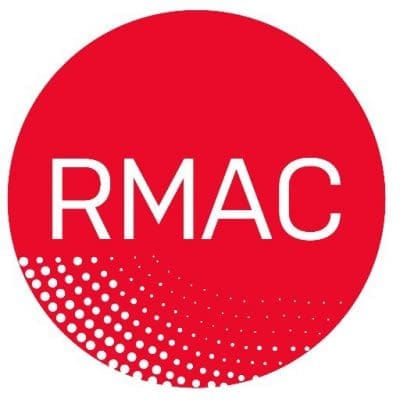The role of Australian Government’s food safety regulator could soon be broadened to enable it to consider sustainability and cultural issues when developing food regulatory measures, while also gaining new enforcement powers.

A reform of the Act which oversees the role of Food Standards Australia and New Zealand (FSANZ) has been underway since July last year.
A recently released draft Regulatory Impact Statement has recommended three options for reform of the Act, two of which would result in an expansion of FSANZ’s role to enable it cover sustainability and cultural issues in food regulation, while also granting it greater enforcement powers.
The developments have triggered concern among red meat sector bodies which see the broadened role as an over-reach by the regulator and believe FSANZ’s remit should remain firmly focused on the role of assuring food safety.
FSANZ’ stated vision on its website is to ensure that consumers have “a high level of confidence in the safety of food”.
The terms of refererence for the review of the Food Standards Australia and New Zealand Act 1991 (FSANZ Act) made no reference to FSANZ’ role being expanded to cover consideration of sustainability and cultural issues in its governance of food standards.
Questions are now being asked as to why the draft report resulting from the reform process makes 43 seperate references to sustainability, which was not covered in the review terms of reference.
The relationship between Australia’s $20 billion red meat sector and the government food standards regulator has come under strain in recent times over a number of issues.

An example of labelling on a plant-based product being sold as meat, in this case bacon, in a Woolworths supermarket.
At Beef 2021 in May RMAC raised concerns about a “loophole” created in 2016 when FSANZ approved changes to the food standards code, which allowed non-dairy products to be labelled with the word “milk”. The amendment in effect opened the door for producers of so-called fake-meat to also label their product with words like “meat”, “beef” and “chicken”.
In June RMAC challenged FSANZ over its decision to feature the CEO of alternative protein group Food Frontier in one of its webinars, questioning why a tax-payer funded agency would provide a platform to a group which is publicly critical of livestock production, and in turn the work of Australian livestock producers, livestock transporters, meat workers and butchers, and partners with organisations such as Impossible Foods which have stated missions to end animal agriculture.
Senior FSANZ figures were due to take questions on some of these issues at a Senate Estimates hearing last month, but the event went over time causing FSANZ ‘s appearance to be postponed, and a new hearing date has yet to be rescheduled.
As it stands under the current Food Standards Australia New Zealand Act 1991, FSANZ’ main objectives of the Act are to protect public health and safety, provide enough information about food to help consumers make informed choices and to prevent fraud and deception, and prevent misleading and deceptive conduct.
Review puts forward three options for FSANZ reform
However support for expanding FSANZ’s role was canvassed from July 2020 when a review of the Food Standards Australia New Zealand Act 1991 (FSANZ Act) was launched.
In the wake of that process three options for the reform of the FSANZ Act and in turn FSANZ were released in April.
The first option would maintain the status quo.
The second option would “modernise the act”, making it “agile, resilient and fit-for-purpose” and create a framework “premised on data-driven, intelligence led decision-making and better integration between system stakeholders”, as described by the authors of the draft report.
The third would include everything in Option 2, plus broadening FSANZ’s statutory functions and giving it an enforcement role.
The broadened functions would include allowing FSANZ to include sustainability and cultural considerations in the development and regulation of food standards.
The draft RIS notes that FSANZ’s objectives “are currently mute on the issues of food sustainability”.
“This leaves FSANZ no levers to consider sustainability issues when developing or reviewing food regulatory measures,” it states.

It adds that emissions from livestock could be considered in food standards in future.
“Environmental sustainability contemplates the impact of agricultural practices, food processing, distribution, packaging, and other activities in the food supply change on climate change, biodiversity, soils and waterways, and ultimately future food security.
“Examples of environmentally unsustainable practices include high levels of greenhouse gas emissions from livestock, inappropriate aquaculture practices and excessive plastic packaging.
 “Consumers and other stakeholder groups are increasingly concerned with environmental sustainability of food and are exercising their purchasing power accordingly.
“Consumers and other stakeholder groups are increasingly concerned with environmental sustainability of food and are exercising their purchasing power accordingly.
“Sustainability is being incorporated into global food discussions, as evidenced by the focus of the United Nations Food Systems Summit 2021, and food regulatory systems are becoming more aware of their critical role in promoting food sustainability. What this role could look like is still being developed.”
Industry could make unregulated claims the environmental sustainability of a product “(e.g., ‘dolphin-safe tuna’ or ‘carbon-neutral beef’)”, it added.
“This information asymmetry leads to a ‘Market for Lemons’ phenomenon, where consumers cannot easily ascertain the veracity of environmental claims, and products with genuinely good environmental attributes cannot establish an appropriate market share. This specific example is less of a concern in New Zealand where the New Zealand Commerce Commission has a clear role in overseeing environmental claims made by industry.”
The draft RIS says the three options “are presented without prejudice and do not represent agreed positions of any government in Australia and New Zealand”.
But the draft report also appears to leave little doubt that option 1 (status quo) is less favoured, stating that “Option 1 does not meaningfully address any of the policy problems identified”, while Option 3 is put forward as the option that solves “all of the policy problems” the draft review is looking to address.
The three options are currently being evaluated, according to the draft RIS, before a preferred option is presented as the final recommendation to the Australian Department of Health and NZ Ministry for Primary Industries.
Dept of Health response
In the wake of the postponed Senate Estimates hearing Beef Central put a number of questions to FSANZ about the review, and received a reply asking us to direct our questions to Federal Department of Health media unit, which has provided some detailed responses this morning (published in full at bottom of this article).
In particular we were interested to ask why the concept of broadening FSANZ’s role to include sustainability and cultural considerations was frequently discussed in the draft Regulatory Impact Statement, mentioned 43 times, when the Terms of Reference for the review made no specific mention of sustainability or cultural issues.
In reply, the Department said the draft RIS and the three options for reform it contains were shaped by the extensive stakeholder consultation received.
“Through this consultation, a number of emerging issues were identified by stakeholders, which included FSANZ’s potential role in food sustainability and in recognition of Indigenous food culture,” the Department of Health response said.
“Exploring FSANZ’s potential role in emerging issues is within the scope of the Terms of Reference and as such, consideration of FSANZ’s objectives in relation to food sustainability and recognition of Indigenous culture were included in the draft RIS reform options.”
Asked if FSANZ had instructed the consultants who developed the draft RIS to include references to broadening its role to include sustainability or cultural issues, the Department said that did not happen.
“The FSANZ Act Review is being led by the Australian Government Department of Health, in partnership with the New Zealand Ministry for Primary Industries. The Department of Health contracted NOUS to undertake consultation and develop the draft RIS in line with the review TOR. As noted above the topics covered in the draft RIS were informed by public consultation.”
The Department added that the responses to the public consultation are being analysed to understand the overall impacts of proposed reform options across various stakeholder groups.
“Findings from all written submissions and additional consultation will be analysed to inform the development of a final Regulatory Impact Statement, which will be used to inform any amendments to the FSANZ Act. The Department of Health, in collaboration with New Zealand, will lead the legislative amendment process.”
(See full questions and Department’s responses below)
RMAC concerned about scope of increases proposed for FSANZ’ role
In its submission RMAC said the consumer confidence developed over thirty years since the FSANZ Act was established “was too valuable to be risked” through an expanded remit of FSANZ, which it said would support “even more partnerships with extreme anti-meat and anti-farmer activist organisations”.
“The regulatory system was originally set up to assure food safety and the Australian red meat and livestock industry firmly believes this should continue to be FSANZ’s remit,” the RMAC submission stated.
 “For example, ensuring that food was manufactured in hygienic spaces and used safe ingredients was important for preventing injury or illness. These are measurable, quantifiable, science-based, risk-based objectives that are directly controllable by the regulated entity, rather than a subjective policy target of ‘long-term health and nutrition’.
“For example, ensuring that food was manufactured in hygienic spaces and used safe ingredients was important for preventing injury or illness. These are measurable, quantifiable, science-based, risk-based objectives that are directly controllable by the regulated entity, rather than a subjective policy target of ‘long-term health and nutrition’.
“The Australian red meat and livestock industry favors a narrower definition focused on food safety primarily in the acute post-consumption period, meaning that the food should only be regulated by FSANZ to prevent injury or illness; longer-term public health and nutrition objectives should only be pursued through other channels including consumer education programs etc.”
It said that consideration of food sustainability and recognition of Indigenous culture and food expertise was not within the remit of FSANZ or the terms of reference of the review into the Food Standards Australia New Zealand Act 1991.
“FSANZ should focus on ensuring that it can suitably deliver on its core legislated functions for food safety and not broaden its remit which will risk diluting the agency’s impact, reputation and effectiveness.
“However, in light of recent FSANZ partnerships with anti-meat and anti-farmer activist groups the Australian red meat and livestock industry is concerned with the effective decision making which may occur if delegated from a Ministerial level.
“Before any decision delegation, FSANZ needs to undertake a review into how partnerships with extremist activist groups were cultivated to ensure the agency’s objectivity can be reinstated and confidence provided to industry and consumers.”
Dept of Health responses to questions:
Given the review terms of reference makes no mention of sustainability can FSANZ please advise why the term is referenced 43 times in the draft RIS?
As noted in Appendix C of the Draft RIS, extensive stakeholder consultation informed and shaped the development of the draft RIS. Consultation was undertaken in three stages to understand stakeholders views on key issues around the FSANZ Act and FSANZ operations, and to inform the FSANZ Act reform options presented in the draft Regulatory Impact Statement (RIS). This has included public consultation on a Scoping Paper across October and November 2020 and targeted workshops with key government, industry, public health, and consumer bodies. Through this consultation, a number of emerging issues were identified by stakeholders, which included FSANZ’s potential role in food sustainability and in recognition of Indigenous food culture. Exploring FSANZ’s potential role in emerging issues is within the scope of the Terms of Reference and as such, consideration of FSANZ’s objectives in relation to food sustainability and recognition of Indigenous culture were included in the draft RIS reform options.
Did FSANZ instruct the draft RIS consultants to include references to, or a focus on, broadening FSANZ’s objectives to include sustainability?
No. The FSANZ Act Review is being led by the Australian Government Department of Health, in partnership with the New Zealand Ministry for Primary Industries. The Department of Health contracted NOUS to undertake consultation and develop the draft RIS in line with the review TOR. As noted above the topics covered in the draft RIS were informed by public consultation.
The draft RIS states “Environmental sustainability contemplates the impact of agricultural practices, food processing, distribution, packaging, and other activities in the food supply chain on climate change, biodiversity, soils and waterways, and ultimately future food security”. Can FSANZ please advise how this is relevant for an agency which is tasked with ensuring that food is safe to consume for Australians and New Zealanders?
As noted above, the options and topics covered in the RIS were informed by several rounds of consultation.
The draft RIS references FSANZ’s objectives not including recognition of indigenous culture. Why are these references included when they were not part of the review terms of reference?
As noted above, the options and topics covered in the RIS were informed by several rounds of consultation.
Any other comments or points related to this subject but not covered in the questions above that FSANZ feels would be important to make/add?
Consultation on the draft RIS has now closed. The public consultation intended to elicit data, commentary and feedback on the impacts of the proposed reform options. The responses to the public consultation are being analysed to understand the overall impacts of proposed reform options across various stakeholder groups. Findings from all written submissions and additional consultation will be analysed to inform the development of a final Regulatory Impact Statement, which will be used to inform any amendments to the FSANZ Act. The Department of Health, in collaboration with New Zealand, will lead the legislative amendment process.
Background:
The Food Standards Australia New Zealand 1991 Act (FSANZ Act) Review commenced in July 2020 and is a comprehensive review of the effectiveness of the FSANZ Act and the associated operations of Food Standards Australia New Zealand (FSANZ). The FSANZ Act Review Terms of Reference outlines the scope of the review, which includes: reviewing the FSANZ Act and FSANZ operations; considering and making recommendations on the operational functions of FSANZ; and considering what wider role FSANZ as a joint body could take, by considering issues and making recommendations in relation to FSANZ’s potential role, including but not limited to, emerging issues, greater advice on interpretation of food standards, and other potential roles. The Terms of Reference are available on the Food Regulation website: https://foodregulation.gov.au/internet/fr/publishing.nsf/Content/Modernisation-of-the-food-regulation-system
